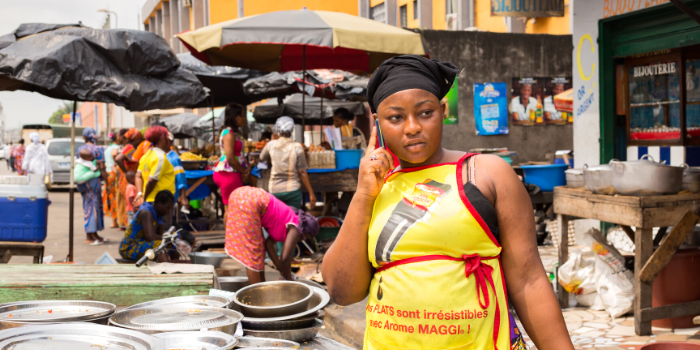BY LEO NELSON
In a move that could shake up regional trade, Chief Gabriel Kwamigah Tanko, a prominent figure on the Volta Region’s Council of State, has publicly declared the government’s unwavering support for women engaged in cross-border trade.
This declaration comes amidst growing calls to empower the backbone of West African commerce: its women traders.
Chief Tanko made the pledge during a crucial visit from the National Cross Border Women Traders Association (NCBWTA), a powerhouse organization representing thousands of women who navigate the often-turbuous waters of informal cross-border trade across Ghana’s sprawling land borders.
For too long, the invaluable contributions of women to the West African trade ecosystem have been overlooked, even undervalued.
These resilient women make up a staggering 70% of informal cross-border traders in Africa, playing a pivotal role in driving trade and industrialization.
Despite their immense impact, they frequently grapple with a myriad of challenges, from blatant extortion and abuse to a dire lack of access to vital trade information.
The NCBWTA, established in 2014, has been at the forefront of this struggle, operating across 25 of Ghana’s 42 border entry points. Their mission? To dismantle the barriers that hinder women traders and ensure their rightful place in the regional economic landscape.
NCBWTA executives didn’t mince words during their meeting with Chief Tanko, laying bare the persistent issues that plague their members.
Non-tariff barriers (NTBs), pervasive harassment by border officials, and crumbling infrastructure were highlighted as major impediments, not only stifling trade efficiency but also threatening the livelihoods of countless women dependent on cross-border commerce.
Chief Tanko acknowledged these grievances, assuring the NCBWTA that the government is committed to fostering a more conducive environment for cross-border trade.
He pointed to ongoing initiatives aimed at streamlining cumbersome border procedures and upgrading infrastructure to ensure smoother trade operations.
In a bid to propel women traders into the digital age, the Ministry of Trade and Industry, in collaboration with the ECOWAS Commission, has distributed smartphones to select cross-border women traders.
This initiative seeks to boost digital literacy and, crucially, facilitate smoother trade operations.
But it’s not just about gadgets. The NCBWTA continues to champion education, organizing workshops and programs to equip its members with a solid understanding of trade regulations and procedures.
Knowledge, after all, is power, especially when navigating the complexities of cross-border commerce.
Chief Tanko reiterated the government’s unwavering dedication to supporting the NCBWTA and other key stakeholders in their efforts to promote inclusive and sustainable cross-border trade.
He emphasized the critical need for continuous dialogue and collaboration to overcome challenges and seize opportunities that will benefit women traders and, by extension, the broader economy.
As Ghana strategically positions itself as a regional trade hub, the empowerment of women traders remains a cornerstone of its economic development strategy.
With the government’s support, coupled with the relentless efforts of organizations like the NCBWTA and the Ghana Shippers’ Authority (GSA), the future of cross-border commerce in West Africa, especially for its resilient women, appears to be charting a promising course.
Will these promises translate into tangible improvements for the women who keep West Africa’s markets buzzing?


